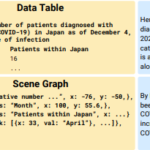2023-07-03 米国国立標準技術研究所(NIST)
◆この手法により、大規模な実験を行う必要が減り、保護材料の開発を効率化できます。研究者たちはさまざまな材料を評価し、材料の強度限界や最適な材料の選択につながる知見を得ました。この手法は、航空宇宙や医療など、さまざまな分野での新しい材料の特定に役立つ可能性があります。
<関連情報>
- https://www.nist.gov/news-events/news/2023/07/new-laser-based-method-could-help-scientists-discover-new-puncture
- https://pubs.acs.org/doi/10.1021/acsami.3c05130
材料の穿孔抵抗: 薄膜の耐衝撃性をマクロスケール材料に拡大する The Projectile Perforation Resistance of Materials: Scaling the Impact Resistance of Thin Films to Macroscale Materials
Katherine M. Evans, Shawn H. Chen, Amanda J. Souna, Stephan J. Stranick, Christopher L. Soles, and Edwin P. Chan
ACS Applied Materials & Interfaces Published:June 29, 2023
DOI:https://doi.org/10.1021/acsami.3c05130

Abstract
From drug delivery to ballistic impact, the ability to control or mitigate the puncture of a fast-moving projectile through a material is critical. While puncture is a common occurrence, which can span many orders of magnitude in the size, speed, and energy of the projectile, there remains a need to connect our understanding of the perforation resistance of materials at the nano- and microscale to the actual behavior at the macroscale that is relevant for engineering applications. In this article, we address this challenge by combining a new dimensional analysis scheme with experimental data from micro- and macroscale impact tests to develop a relationship that connects the size-scale effects and materials properties during high-speed puncture events. By relating the minimum perforation velocity to fundamental material properties and geometric test conditions, we provide new insights and establish an alternative methodology for evaluating the performance of materials that is independent of the impact energy or the specific projectile puncture experiment type. Finally, we demonstrate the utility of this approach by assessing the relevance of novel materials, such as nanocomposites and graphene for real-world impact applications.



